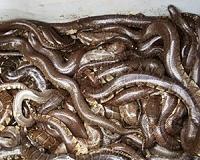| . |  |
. |
Beijing (AFP) Sept 13, 2010 China will send a team to Japan this week to probe the death of a giant panda on loan to a Japanese zoo and could seek 500,000 dollars in compensation for the loss, state press said Monday. Kou Kou died Thursday of cardiac arrest after failing to recover from an anaesthetic at the Oji Zoo in the western port city of Kobe. Veterinarians had sedated the 14-year-old male as part of a programme to impregnate his partner Tan Tan, and were seeking to extract semen from the male panda when he died. China's forestry administration has called on the Japanese zoo to seal up the corpse of the animal and will dispatch a team to Japan to investigate the case, state media said. Chinese experts believe Kou Kou could have died from an overdose of sedatives and were questioning why Japanese veterinarians were extracting semen outside the animal's mating period, the Oriental Morning Post said. According to the China Wildlife Conservation Association, a breeding agreement with Japan includes a stipulation for 500,000 dollars in compensation should a panda die, the paper said. Giant pandas, a highly endangered species native to parts of China, are notoriously slow at reproducing in captivity. The death of Kou Kou comes after Tokyo's Ueno Zoo reached an agreement in July to receive a pair of pandas from China in a deal that will cost nearly one million dollars a year for the next decade. The money is to be spent on wild animal protection in China. There are just 1,600 pandas left in the wild. Nearly 300 others are in captive-breeding programmes worldwide, mainly in China, according to official reports.
earlier related report Belize has the largest known breeding population of Antillean manatees that scientists had hoped could repopulate other parts of Central American where manatees are severely reduced or threatened, a U.S. Geological Survey release said Monday. But the low genetic diversity worries researchers. "It turns out that the genetic diversity of Belize's manatees is lower than some of the classic examples of critically low diversity," USGS conservation geneticist Margaret Hunter, who led the DNA study, said. When a population drops to low numbers, researchers say, the diversity of its gene pool also shrinks. Even if it rebounds to greater numbers, that population decline leaves a legacy of reduced genetic diversity known as a bottleneck. This renders the population more vulnerable to threats to their survival such as disease, hurricanes or habitat destruction, scientists say. The low genetic diversity in Central American manatees is blamed in part on centuries of hunting that were only curtailed early in the 20th century.
Share This Article With Planet Earth
Related Links Darwin Today At TerraDaily.com
 Malaysian authorities appeal 'Lizard King' jail sentence
Malaysian authorities appeal 'Lizard King' jail sentenceKuala Lumpur (AFP) Sept 8, 2010 Malaysian prosecutors said Wednesday they will seek a tougher sentence against wildlife trafficker Anson Wong, whose six-month jail term for smuggling snakes has been sharply criticised. Wong, nicknamed the "Lizard King" and described as one of the world's most-wanted traffickers, was handed the sentence Monday for attempting to smuggle 95 endangered boa constrictors to neighbouring Indonesi ... read more |
|
| The content herein, unless otherwise known to be public domain, are Copyright 1995-2010 - SpaceDaily. AFP and UPI Wire Stories are copyright Agence France-Presse and United Press International. ESA Portal Reports are copyright European Space Agency. All NASA sourced material is public domain. Additional copyrights may apply in whole or part to other bona fide parties. Advertising does not imply endorsement,agreement or approval of any opinions, statements or information provided by SpaceDaily on any Web page published or hosted by SpaceDaily. Privacy Statement |